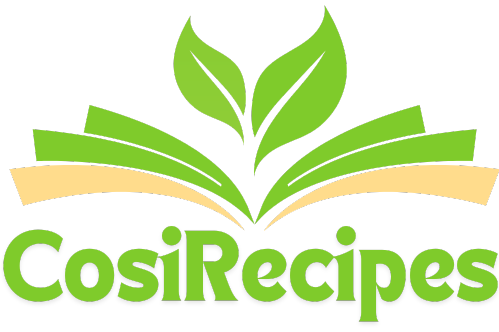1. Introduction
Turkey breast lunch meat processed is a topic of growing concern for health-conscious individuals. While it’s a popular choice for quick meals, questions about whether it qualifies as a processed meat and its potential health risks are important to address.
This article explores the preparation, nutritional profile, and health considerations of turkey breast lunch meat to help you make informed dietary choices.
Definition of Processed Meat
- Processed meat refers to any meat that has been altered from its natural state through methods like:
- Smoking or curing
- Adding preservatives or salt
- Incorporating other chemical additives for flavor and shelf life.
Overview of Turkey Breast Lunch Meat
- Turkey breast lunch meat is a popular choice for those seeking a lean protein source.
- Known for its versatility, it is often used in sandwiches, wraps, and salads.
- However, questions arise about whether it qualifies as processed meat.
Why It Matters
- Many health-conscious individuals are concerned about:
- Sodium levels in processed meat.
- Nitrates in turkey breast and their potential health risks.
- The overall cancer risk and processed food consumption.
Understanding whether turkey breast lunch meat falls under the category of processed meats helps individuals make informed dietary choices.
2. What is Processed Meat?
The term processed meat encompasses a variety of products that undergo preservation or flavor enhancement methods. This classification includes commonly consumed items like lunch meats.
Definition According to Health Organizations
- Organizations like the WHO and USDA define processed meat as any meat preserved by:
- Curing.
- Smoking.
- The use of chemical preservatives or additives.
Common Examples of Processed Meats
- Deli turkey risks often lie in their processing methods. Other examples include:
- Sausages and hot dogs.
- Bacon and ham.
- No nitrate deli meat options, while marketed as healthier, may still undergo significant processing.
Methods of Processing
- Key methods include:
- Smoking and curing meats: Enhances flavor but introduces potentially harmful compounds.
- Adding preservatives: Helps extend shelf life but raises concerns about chemicals in food.
- Using additives in meat products: Ensures taste consistency but may pose health risks.
Understanding these methods provides clarity about the presence of preservatives in food and their implications for health. While fresh turkey breast alternatives are available, they may not offer the same convenience as pre-packaged organic turkey lunch meat.
3. Is Turkey Breast Lunch Meat Considered Processed?
The classification of turkey breast lunch meat as a processed meat depends on how it is prepared and preserved. Understanding the differences between fresh and deli turkey helps clarify this question.
How Turkey Breast Lunch Meat is Typically Prepared
- Turkey breast lunch meat is often:
- Pre-cooked or roasted.
- Thinly sliced for convenience.
- Treated with additives like preservatives in food to extend shelf life.
- Common preservatives include nitrates in turkey breast to maintain color and prevent spoilage.
Differences Between Fresh Turkey Breast and Deli Turkey Meat
- Fresh Turkey Breast:
- A whole cut of meat that is minimally processed.
- Contains no added sodium or additives in meat products.
- Requires cooking and preparation at home.
- Deli Turkey Meat:
- Pre-packaged or available at deli counters.
- Often cured, smoked, or treated with preservatives in food.
- Contains higher levels of sodium and nitrates.
Understanding Labels
- “Oven-Roasted”:
- Refers to a cooking method rather than a lack of processing.
- May still include preservatives or additives.
- “No Nitrates”:
- Indicates no added nitrates or nitrites; however, some natural sources like celery powder may still be used.
- “Low-Sodium”:
- Suggests reduced sodium levels in processed meat compared to standard versions.
While labels like “organic turkey lunch meat” or “no nitrate deli meat” can be appealing, they do not necessarily mean the product is free from all forms of processing.
4. Nutritional Profile of Turkey Breast Lunch Meat
Despite being categorized as processed meat, turkey breast lunch meat offers several nutritional benefits. However, these benefits must be weighed against its potential downsides.
Protein Content and Health Benefits
- Rich in lean protein, which is essential for:
- Muscle growth and repair.
- Sustaining energy levels.
- A 2-ounce serving typically provides 9–12 grams of protein.
Sodium and Preservative Levels
- Sodium content is a concern for most lunch meats:
- A single serving can contain 400–600 mg of sodium.
- High sodium levels in processed meat may contribute to high blood pressure.
- Preservatives like nitrates in turkey breast are used to maintain freshness but are linked to health risks.
Comparison with Other Processed Meats
- Compared to options like bacon or sausage:
- Turkey breast lunch meat is lower in fat and calories.
- Contains fewer harmful additives than heavily cured meats.
- However, even “healthier deli options” may still fall short of the nutritional value of fresh turkey breast alternatives.
By evaluating its nutrition facts and ingredient list, consumers can make informed choices about incorporating turkey breast lunch meat into a balanced diet.
5. Health Risks Associated with Processed Meats
While processed meats like turkey breast lunch meat are convenient, research has linked their consumption to several chronic health conditions.
Chronic Diseases Linked to Processed Meats
- Cancer Risk:
- The World Health Organization (WHO) classifies processed meats as a Group 1 carcinogen.
- Nitrates in turkey breast can form nitrosamines during digestion, which are associated with an increased risk of colorectal cancer.
- Heart Disease:
- High sodium levels in processed meat can lead to hypertension and cardiovascular issues.
- Saturated fats in certain processed meats may also contribute to heart disease.
Role of Additives
- Nitrates and Nitrites:
- These compounds extend shelf life and enhance color but pose health risks when consumed in large amounts.
- Sodium:
- Excessive sodium intake can:
- Raise blood pressure.
- Increase the risk of stroke and kidney disease.
- Excessive sodium intake can:
Portion Control and Expert Recommendations
- Nutrition experts recommend:
- Limiting processed meat intake to occasional consumption rather than daily meals.
- Choosing “healthier deli options” with reduced sodium and minimal additives.
- Balancing processed meat intake with whole foods like fruits, vegetables, and fresh turkey breast alternatives.
By moderating portions and opting for less-processed products, individuals can reduce their exposure to potential risks associated with deli turkey risks and other processed meats.
6. Healthier Alternatives and How to Choose Them
For those looking to enjoy turkey breast lunch meat while minimizing health risks, there are healthier options and preparation methods to consider.
Tips for Selecting Less-Processed Lunch Meats
- Look for labels such as:
- “No nitrate deli meat” (though naturally occurring nitrates may still be present).
- “Low sodium” to reduce sodium levels in processed meat.
- “Organic turkey lunch meat” for cleaner ingredient lists.
- Avoid products with:
- Artificial flavors or preservatives.
- Excessive sodium or sugar content.
Best Practices for Preparing Fresh Turkey
- Purchase whole fresh turkey breast alternatives to cook and slice at home.
- Use simple seasonings like herbs and spices instead of processed marinades.
- Store in airtight containers to maintain freshness without added chemicals.
Highlighting Minimal Additive Brands
- Some brands offer lunch meats with fewer additives, such as:
- Applegate Organic and Natural Meats.
- Boar’s Head Simplicity line.
- True Story Foods.
By choosing minimally processed options, you can enjoy the convenience of lunch meats without the added risks.
7. FAQs About Turkey Breast Lunch Meat and Processed Meat
Is “No Nitrate” Turkey Still Processed?
- Yes, no nitrate deli meat is still processed if it undergoes methods like curing or smoking.
- Natural nitrates from celery powder are often used as substitutes, but they function similarly to synthetic nitrates.
Can Processed Turkey Be Part of a Balanced Diet?
- In moderation, yes.
- Experts suggest limiting processed meat consumption to a few times per week and pairing it with nutrient-dense foods.
How to Read and Understand Food Labels on Lunch Meat?
- Focus on:
- Sodium content: Aim for less than 400 mg per serving.
- Additives: Avoid products with artificial preservatives or flavors.
- Serving size: Ensure you’re not consuming more than the recommended portion.
By being label-savvy, consumers can make informed choices about their turkey breast lunch meat intake.
8. Conclusion
Recap of Key Points
- Processed meats like turkey breast lunch meat are convenient but often contain nitrates, sodium, and other additives.
- These ingredients have been linked to chronic diseases, but risks can be minimized by choosing healthier deli options or preparing fresh turkey breast alternatives at home.
Final Thoughts
Making informed dietary choices is crucial for long-term health. By understanding what goes into your food and opting for minimally processed alternatives, you can enjoy the convenience of lunch meats while prioritizing your well-being.






